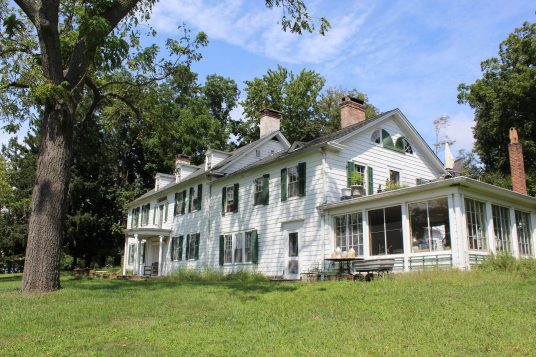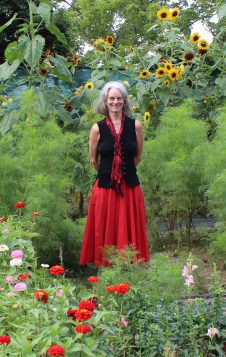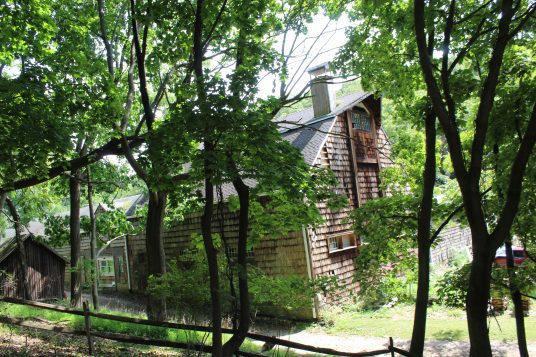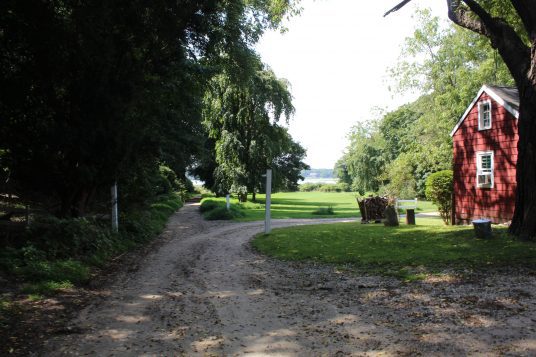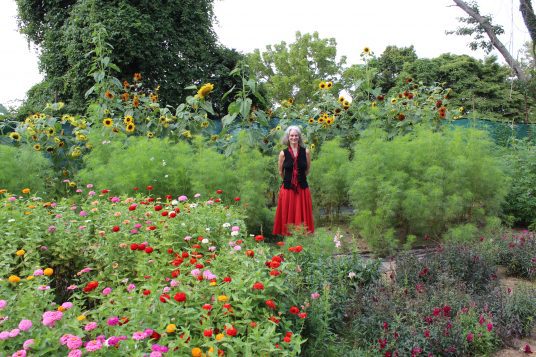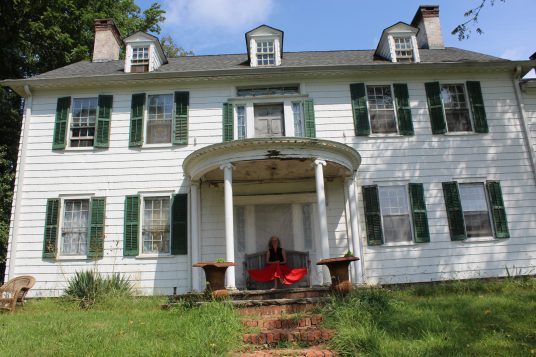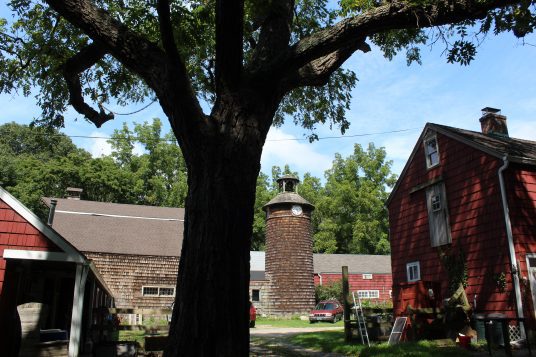Thatch Meadow Farm, where historic preservation meets reality
By Raymond Janis
Thatch Meadow Farm is a scenic, historic property in St. James tucked away off a dirt path from Harbor Road.
Situated along 18 acres overlooking Stony Brook Harbor, the farm features a massive barn, an 18th-century era mansion, several cottages and farmhouses and a wide assortment of trees, shrubs, plants and other natural greenery.
Supervising this vast estate is Constance “Conky” Nostrand, who inherited the land from her grandmother along with her two sisters, both now deceased.
Following the death of her mother when she was a teenager, Nostrand moved to Manhattan to live with her father. She said Central Park “saved her life” during those years, its open space “what made Manhattan work for me.”
Now, as she walked the land which has been in her family all her life, the sole inheritor of this estate defined her life’s mission.
“My job is to save this property,” she said. “It’s my savior. It has saved me my entire life, and it’s the only thing that brings me such peace and happiness and serenity.”
Preservation pitfalls
Nostrand expressed fears that such open spaces throughout Long Island could soon be wiped out — paved over and developed.
“My vision is that eventually Long Island is going to look like Manhattan Island,” she said. “Everything is going to be concrete and gridlocked and sectioned off into squares of asphalt.”
She viewed the general trends taking place both locally and globally as moving away from the values of preservation and conservation.
“A lot of people don’t see preservation as it should be seen and the benefits of it — of open space, of quiet space, of land with flowers and trees,” she said. “There’s geese and deer and animals all over the place with butterflies and hummingbirds.”
She added, “It’s because of the nature around us that they’re all here. It’s a sanctuary.”
But maintaining such a space requires continual upkeep and repairs. And while Nostrand, a former child care worker, says her retirement check has not increased, she sees costs skyrocketing everywhere else.
“It’s always going to cost money to fix things, and unfortunately everything is getting more expensive — except my child care retirement salary,” she indicated.
Nostrand also observed how the odds are increasingly stacked against Long Island’s aging population, who she said are having an even harder time staying put:
“I’m not sure how people are supposed to stay in their homes when they get older if they don’t get more money,” adding, “It’s really challenging how your taxes go up, but your income doesn’t go up.”
Conquinox music event
Given the sense of awe and tranquility the land has inspired in her, Nostrand has sought to share her “piece of heaven” with others. She noted the tradition of concert events held along the main lawns throughout the decades.
“I like to share [the property] with others, which is one of the reasons I used to have these solstice parties,” she said. Through them, “I felt I was making lots of people appreciate this property because nobody sees it — we’re off the beaten path.”
Grappling with a high tax assessment on the property and related maintenance expenses, Nostrand forecasted her next endeavor as an adventure into “a new realm.”
Inspired by wineries along the East End, Thatch Meadow Farm is currently experimenting with transitioning the venue into an entertainment space. “The concept is to use the farm for flowers and music,” she said.
The farm will launch the inaugural Conquinox event on Saturday, Sept. 30. This four-hour concert will feature an all-star lineup, including Bakithi Kumalo’s Graceland Experience.
Reached via Zoom, Kumalo — who is best known for his fretless bass playing on Paul Simon’s famous 1986 “Graceland” album — outlined his deep connection to Long Island and Thatch Meadow Farm.
Kumalo, whose journey began in South Africa, spent nearly three decades living in Stony Brook before moving to Pennsylvania, where he currently resides. He highlighted the value that historic parcels, such as Thatch Meadow, could offer a community.
“A place like that, we need it for educational programs,” he said. “A venue like that can be used … all year round” to educate children about local history, while offering a space for musical performances.
Kumalo suggested that while he had observed many “problems with the system” while growing up in South Africa, music had always offered refuge from the societal ills around him. Now, given the difficulties facing the farm, he regarded the need for music as recurring for Thatch Meadow.
“For the music, you try to stay focused and not get distracted by the outside stuff,” he said. “It’s not about the money. It’s about the support, and I have a great team of people who are going to help me and play this music.”
But, he added, “We can’t do this without the community. Everybody has to pitch in.”
To learn more or purchase tickets for the event, visit www.thatchmeadowfarm.com.
An optimistic outlook
Despite the barriers, Nostrand said she remains committed to the cause for historical preservation of her family’s farm.
“It’s always going to be a struggle, but nothing is easy,” she said. “You have to fight for everything you want, and the fight has to be just,” adding, “There’s nothing more just than saving this property.”
In the face of adversity, she maintained an optimistic outlook. “I’m an optimist,” she said. “I’m going to hope and pray that all good things will happen, and that’s all I can do.”


